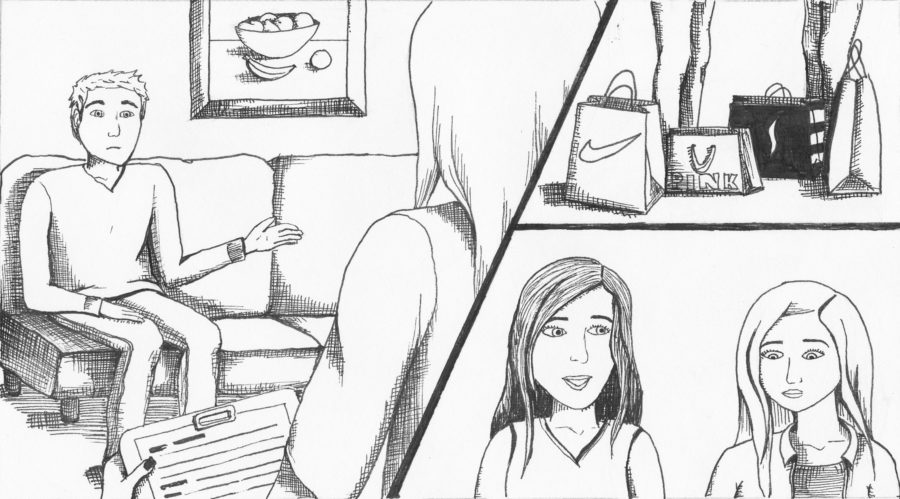Mental health issues call for peer support
April 21, 2017
A lot of us have never really had a mental illness and none of us are professionally trained in treating one. Every few months or so it seems—for me at least—I hear that a close friend or just someone that I’ve seen in the hallways is struggling with a mental health issue. And in the chaos of such turbulent times, the people are just trying to make sense of it all.
For me, and possibly many other people in this school, it is a challenge knowing what kind of support to provide a friend coping with a mental illness. What we have been taught to do in middle school doesn’t always feel like enough, but learning what to do is proving to be absolutely essential.
One of the most important things to consider is, actually, yourself. Imagine a family member had the stomach flu; how well could you take care of them if you had a cold at the same time? Not well, I assume. The same idea applies to your mental health.
Depending on how close the person is to you, it can be something that occupies much of your thoughts and time because knowing that someone in your life is struggling can be hard for you to reconcile with.
So, what I urge is that you designate a coach, teacher or family member that you trust to talk about the situation and its impact on you.
Without your needs being met, or at the very minimum without your thoughts being heard, you might start to take on some of your friend’s pain and stress. In assuming their struggles, you won’t be able to adequately support them, and the situation may become further complicated.
Learning to process your emotions is as important in this situation as it is for any. You have to be able to keep your head.
What I’ll share next, I struggle with the most. We, as humans, full of compassion and empathy, innately want to provide people with a solution when there is a problem. If someone comes to you telling you that they’ve self-harmed, you might initially just think to say, “Don’t do that! We can find another way to cope!”
But the situation is always going to be deeper than that. Even if you understand its depth, you —who is just as new to these types of emotions and behaviors as your friend might be— won’t really know what the best course of action truly is.
So, when a friend comes to you with any sort of mental health problem, first make sure that an adult or a professional is aware. These are the people who know the best actions to take. After you’ve made sure of that, listen.
Just listen. Ask them questions so that they feel heard or maybe don’t say anything at all and just hug. By giving paragraphs of advice, you designate yourself as another person whose expectations must be met. Instead of doing that, just occupy the empty spaces with them. With each moment that requires your genuine support, you will become a better listener and a better comforter.
Now, no one wants an elephant in the room, but for someone who has mental health issues, it can sometimes feel that way when getting together with friends. The final thought I will share with you is: maintain a sense of normality for them. Your friend should already be getting support from therapists and/or medications, so another therapy session with all their friends around is not what they need.
They oftentimes need an escape, and having a breath of normalcy can provide that. Invite your friend out to do things that they are comfortable with and that are healthy for them, and when you’re together, act as you would normally.
This shouldn’t affect their level of comfort in confiding in you, but rather they won’t have to feel so fragile or out of place for a few hours. They will feel reintegrated into their regular lifestyles, which is what therapy and medication was for in the first place!
If you’re faced with an illness or someone close to you is, hopefully now you’ll have more to consider in the situation. In any case, I hope that none of you have to be put in this situation, but it’s imperative that we further the discussion anyway.



